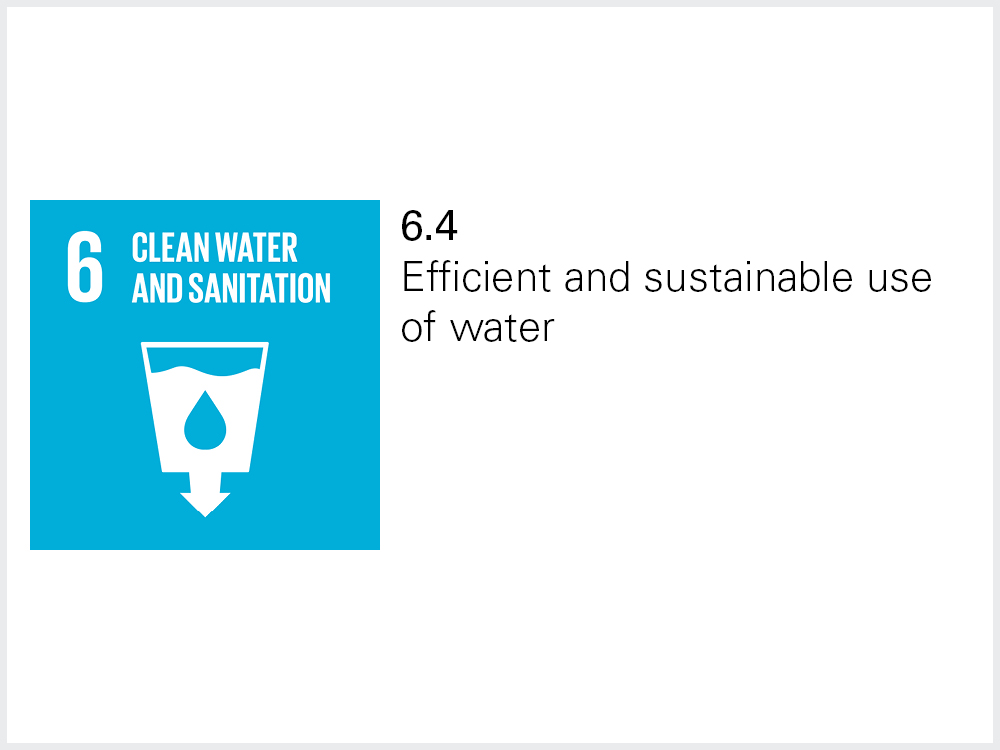Water

Water plays a crucial role in many areas at the University of Basel: as a coolant, drinking water, in laboratories, for cleaning and watering plants. During the COVID-19 pandemic, total water consumption declined due to reduced use of facilities. In 2022, water consumption rose again, largely as a result of an increased use of cooling water during maintenance works at refrigeration machines in laboratories.
The University of Basel is careful to protect its water resources and use them responsibly. This includes, for example, thoroughly neutralizing laboratory wastewater before flushing it into the wastewater system. In order to reduce water consumption, potential campus-wide water savings measures are constantly being tested.
Use of rainwater in the Botanical Garden
In the Botanical Garden, large quantities of water are needed to fill the ponds and water the plants. In the greenhouses, some 50% of the water used is rainwater that is collected from the roofs and stored in two cisterns. The rainwater is filtered and sanitized using a modern system before it is used to water plants. This process resulted in a total of 2,800 m3 of tap water saved in 2021 and 2022, which amounts to more than the total capacity of an Olympic-sized swimming pool.
Reduction in tap water use, but temporary increase in use of water for cooling
Total water consumption rose in comparison to 2020, but in both 2021 (approx. 174,000 m3) and 2022 (approx. 249,000 m3), it was lower than before the pandemic in 2019. Consumption in 2022 is roughly equivalent to the annual household water consumption of 4,800 Swiss persons.1 Tap water consumption was lower in 2021 and 2022 than in prior years. However, consumption of cooling water rose considerably in 2022 compared to 2021. This was largely due to the maintenance and replacement of refrigeration machines in laboratory buildings, which temporarily led to increased reliance on cooling water.
Goals & actions
Improve data collection and monitoring of energy and water consumption
Automate data evaluation in the energy management and monitoring system (EMMS), develop a concept for reporting results to user groups in the various buildings
Project Management & Engineering
Reduce water consumption at the University of Basel
Optimize monitoring of water consumption (drinking and process water), review water-saving measures at the campus level
Facilities
Campus Services
[1] In 2019, the daily household consumption of a person in Switzerland was approx. 142 liters per day, or 52,000 liters (52 m3) per year.


